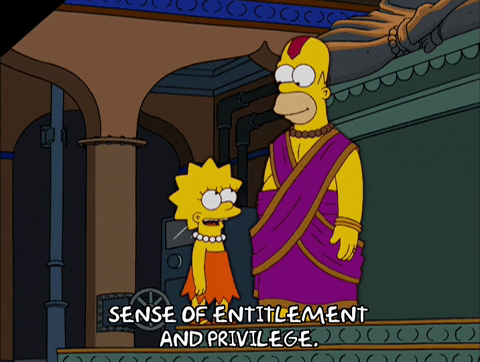Friends, you've probably seen Lauren Singer. The woman who fit 5 years of trash into a mason jar. She runs the Package Free Shop in Brooklyn, New York, and is widely seen as a spokesperson for the zero-waste movement. She recently posted on Instagram explaining why she bought plastic items, and she got a lot of flack for it. She explained that she was preparing for quarantine and that she learned her lesson when Hurricane Sandy hit New York, and she was left without power and food for a while. She said it was okay to have plastic and things that go to landfill because these are unprecedented times and we needed to ensure that we survive. This got me thinking. The zero-waste movement has so much privilege. I'll be outlining my thoughts on it, in terms of food and clothing, but there are a whole lot more instances of privilege.
Some tips I've heard circulating about being more zero-waste in food is to bring your own packaging and avoid places that use single-serve plastics and other materials that end up in landfill.
Avoiding places that use single-serve plastics is hard for some people, especially people that live in food deserts. Oftentimes, fast food, which uses single-serve plastics, is one of the only options in a food desert. Food deserts are disproportionately located in neighborhoods where POC are the majority. So, yes, people that can avoid single-serve plastics should do so. But, it needs to be recognized that single-serve plastics are a reality for a lot of people. What are other sustainable alternatives?
One might say, buying food from the grocery store, cooking it yourself, and bringing it wherever you go. That cuts down on single-use plastics and saves money. I'm a huge advocate for this. This is the way I've grown up; I've never been a "hot-lunch" kid. Buying food to make yourself from the grocery store is the way to go. Except when it's not. It needs to be said that cooking takes time. A lot of people that are struggling to make ends meet are working multiple jobs and they don't have as much time to cook. I'm not trying to make excuses, I'm currently writing an article about fast and cheap homemade food since that's basically all I eat haha. But, time is a privilege. It's a lot easier to buy fast food on your lunch break because it's cheap and easy.
Moving on to clothing, there is a lot of controversy surrounding fast fashion. Fast fashion has 52 seasons, one for each week, and consists of cheaply made clothing that is not meant to last a long time. There's a lot of conversation in the zero-waste movement condemning fast fashion and promoting ethical and sustainable brands. But, fast fashion is cheap. Really cheap. There are many people who cannot afford these sustainable brands. Sustainable usually goes hand-in-hand with ethical, which means ethical growing patterns and habits and ethical wages. This means it takes more money to actually make the product, so the final cost is more expensive. I consider myself a minimalist. I don't own a lot of clothing and I'm fortunate enough to have the privilege of sometimes buying from ethical and sustainable brands. But a $10 bubble bar from Lush isn't practical as opposed to two huge bottles of shampoo and conditioner in plastic packaging from the pharmacy for $6.
What does all of this mean? Never buy fast food again? Never buy from Forever 21 or H&M? No. It means doing the best you can and trying to minimize your environmental impact as much as you can. There's a lot of competition in the movement, with the trash jars, and the viral videos of people foraging in garbage cans because they hate plastic that much. These things bring a negative light on the movement because it seems too radical and impractical for any "regular" person to do. The zero or low-waste movement doesn't need a few people doing it really "well." It needs a lot of people doing it imperfectly.
A final note, zero-waste is about using what you have. I see so many people going out and buying glass Tupperware and throwing away their plastic Tupperware in the name of zero waste. That makes no sense. Plastic can take over 1000 years to decompose. Throwing away perfectly good containers because they're plastic, isn't zero-waste. Use what you have. It doesn't have to be aesthetic, it doesn't have to be pretty. It just has to work.
So, I urge you to take a look at the zero-waste movement. We need a lot of people doing it imperfectly. If you want to know what my zero-waste essentials are, an article will be coming out soon.
- Is Zero Waste Only for the Privileged? (And Does It Matter ... ›
- Intersectionality Is Important For Environmental Activism Too ... ›
- 7 "Zero-Waste" Habits That Are Secretly Unnecessary Money Wasters ›
- Environmental racism and the zero waste movement - Polly Barks ›
- Books about Environmental Racism, White Privilege, and Climate ... ›
- The Truth Behind Zero Waste : The Good, The Bad and The Privilege ›











